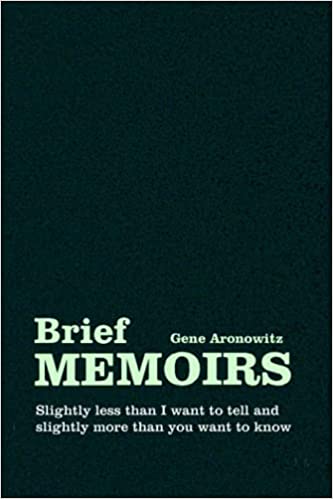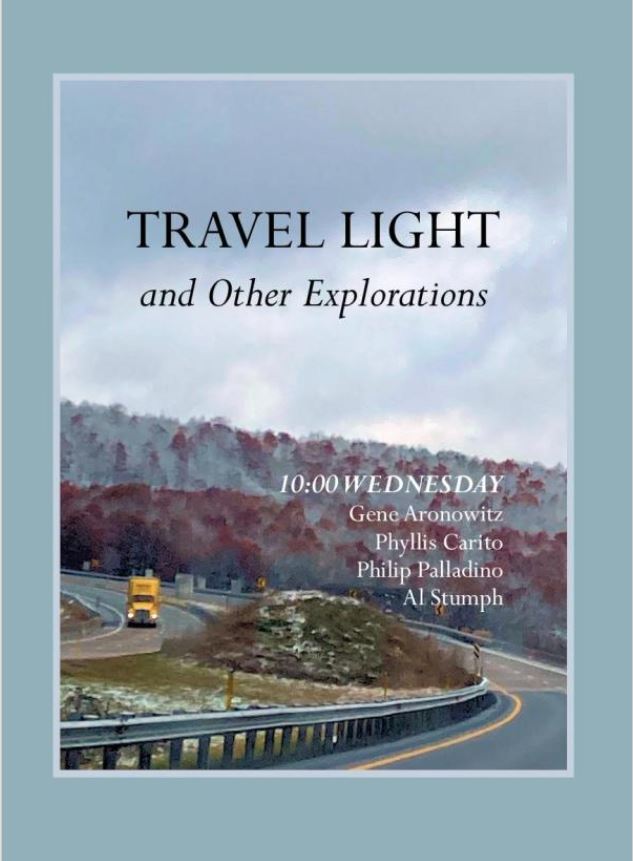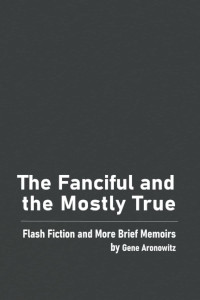Chuck and Me
By Gene Aronowitz
In early 1970, I received a letter from Boston Children’s Service Association asking if I would be interested in being considered for their Associate Director position. I don’t know how they knew about me, but the opportunity sounded intriguing. I learned what I could about the agency and then met with Chuck Bates, the Executive Director. I thought it went well.
Chuck wrote that my credentials and knowledge were perfect, but I came off so low-key that he didn’t think I had the power or energy to handle the job. He suggested a second interview. I said I would return but was sure I would not act differently. That’s just the way I was. However, I pointed out that I was considered a radical in Chicago (as described in the previous memoir, “Repression: The Chicago 7 and Me”). He checked with some of his Chicago contacts, decided that a second interview would not be necessary, and offered me the job.
Chuck and I worked very well together for about two and a half very positive years. He had a close friend, Jack Hanson, who was Chief of Staff of Ohio Governor John Gilligan. He offered Chuck the position of Director of Public Welfare. Chuck accepted and asked me if I would like to join him as his Special Assistant. I did, and we moved to Ohio.
I was kept busy inside our office building, keeping track of federal laws and regulations and keeping internal and external communication flowing. I liked the work but never got used to being so invisible. I was in a Deputy Director level position, and everything I produced had Chuck’s name on it, not mine.
Governor Gilligan had been preceded by James Rhodes who was governor for two four-year terms and could not run again, at that time, because of term limits. Before leaving office, Rhodes placed his top staff in lower-level positions, offering them job security, but also keeping them around if he ran again. He did run, against Gilligan, won, and his former team emerged as if by spontaneous generation to resume their previous jobs. At noon on inaugural day in 1975, Jack, Chuck, and I were all out of work. It was a clean sweep; three levels of the bureaucracy were gone.
Both Chuck and I heard that Westchester County, New York was looking for a social service commissioner, and we each independently applied for it. Of course, I had no chance against him. Chuck was the head of a state agency, and I was his assistant. At the end of February, Chuck was appointed Commissioner of Social Services in Westchester County for a five-year term.
The Department of Social Services was in bad shape at the time, with the County Police and District Attorney investigating possible welfare fraud and mismanagement. Chuck wasted no time implementing a major shakeup and asked if I was interested in becoming Deputy Commissioner. I had been looking, unsuccessfully, for a job and eagerly accepted his offer. I started in May 1975.
Chuck and I were very different. I was more supportive and collaborative with staff. Chuck was more heavy-handed. While I would not have moved so many people around, I respected and admired Chuck for his forthrightness. In his opinion, the shakeup was needed, and he did it, probably aware of the hostility it would engender among staff. He didn’t seem concerned about whether he would be liked or admired, a characteristic that served him well. Welfare operations were among the most publicly criticized of any public service. There was never enough money, and dishonest public assistance recipients got all the attention. Chuck never spun bad news. He was brutally honest, and his view of the facts was frequently not what people wanted to hear.
Not only were Chuck and I close, but our families were as well. They invited us to their house often and always for a tree lighting evening prior to Christmas. I was fond of Chuck, but during my third year at the Department of Social Services, I knew it was time to move on. I had an experience that I resented and realized that I needed a more public identity. The American Public Welfare Association asked Chuck to write a paper about public social services on a local level. We agreed to co-write the article. But Chuck was not a writer; I was and had already published two articles in professional journals. I wrote the paper, but because Chuck was the Commissioner, his name appeared as the senior author. I understood why that happened but didn’t like it. I thought my identity was being submerged, suppressed by my coat-tailing, and it was time to get out from under. I learned that the county’s mental health operation had been reorganized, and a search was underway to recruit a commissioner to head the new Department of Community Mental Health.
I told Chuck I was interested in the opportunity, but he was not encouraging. For the past eight years and, I’m sure, during our conversation, he considered me second banana - Associate Director in Massachusetts, Special Assistant to the Director in Ohio, and then Deputy Commissioner in Westchester. Also, I had just turned 40, 10 years younger than him, and he probably considered me too young. He said I didn’t have much of a chance. It occurred to me, perhaps mistakenly, that he was using me to advance his own career and didn’t want that to end. I concluded that the Commissioner job might be my best, and perhaps last chance, to be the high-level, independent professional I wanted to be. I decided to apply, and, as described in the next memoir, “Thirty Minutes of Fame,” I got the job.
Chuck and I maintained a cordial relationship but we didn’t have much contact after that. We attended cabinet-level meetings and occasionally had lunch together. Everything remained amiable until 1985, fifteen years since we started working together and seven years since my appointment. His second five-year term as Commissioner of Social Service was ending, and County Executive Andrew O’Rourke decided that he would not reappoint him. That was big news. A reporter called me and asked if I wanted to comment. As a political appointee, I knew not to contradict my boss publicly. Any statement that implied that Chuck deserved a reappointment was out of the question. I told the reporter I had no comment. After he hung up, I realized that I could have said something positive about Chuck without implying that the County Executive was making a mistake. I could have said I appreciated all he taught me, how well we worked together, and that I wished him well. But I hadn’t. All I said was “no comment.” I didn’t want Chuck to see that in print, so I called him to tell him what I had done. He was livid and hung up on me. Chuck lived another 31 years, but that was the last time we ever spoke. The rupture of our relationship always bothered me.
If I had not called him about my “no comment,” he would have never known. I was not mentioned in the article.


